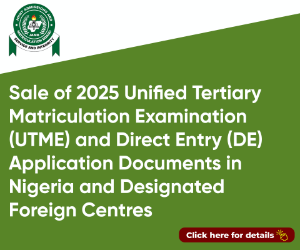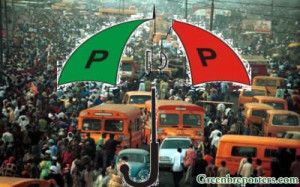University Education And Generational Change In Africa II By Muhammad Jameel Yusha’u

But when it comes to the countries that export students, the study by Wittenborg University has some findings that could interest a lot of readers. It shows that Morocco exports more students compared to any other African country with (11.3%), followed by Nigeria (10.2%), Algeria (5.9%), Cameroon (5.3%), Zimbabwe (5.2%), Tunisia (5.1%), Kenya (3.5%), Senegal, (3.1%), Egypt (3.1%) and finally Botswana (2.3%).
There are some interesting issues we need to pay attention to in these figures. While South Africa is the second major destination for African students around the world, and the first within the continent, it is missing when it comes to exporting students.
This could relatively suggest how satisfied South Africans are with their universities. While Nigeria is missing among the destination for international students, it exports the second largest number from the continent.
Does this suggest that Nigerians are dissatisfied with quality of their universities? Perhaps Professor Ali Mazrui would be the best to answer this question where he to produce a new edition of his book entitled “A Tale of Two Countries-Nigeria and South Africa As Contrasting Visions.”
One of the interesting analogies drawn by Professor Mazrui in the book was that “Nigeria is the largest exporter of oil,” and “South Africa is the largest consumer of oil.”
Beyond oil, now another contrast has emerged. South Africa is the largest importer of African students, while Nigeria is the largest exporter of students from Sub-Saharan Africa.
This is not the only lesson from the statistics above. While Botswana is the only country from Southern Africa that exports students, from the West African region, Nigeria, Cameroon, and Senegal have featured, while no West African country is a major importer. One would ask that Tunisia, Egypt and Algeria have featured from North Africa. The answer is an obvious yes, the difference however with the West African region and other parts of Sub-Saharan Africa is that the universities in Morocco and Egypt at least have some quality that they attract many international students.
Building high quality universities has a lot of advantages for African countries. At least it will help the continent to produce higher institutions of learning that directly address the needs of the continent. University education is not just about speaking Victorian English or ability to converse in flawless French. It is about addressing the local needs of the society through rigorous research and intellectual stimulation. Unfortunately, to quote the late Waziri Junaidu, the famous scholar of Sokoto Caliphate, “our universities belong to us only in their location.”
It is sad that some of the best researches conducted about Africa are stocked in libraries outside the continent. Though even the research conducted in African universities are hardly touched by African policy makers.
The late Dr Yusuf Bala Usman lamented about this during a lecture at the Bayero University, Kano, in the early days of Nigeria’s return to civilian rule after the May 1999 elections. He mentioned that almost two years into the new experiment not even a Local Government Chairman worked into his university to ask for any research to be conducted in order to guide him in coming up with strong policies that will guide his administration.
In fact, one of the Governors attending the function excused himself to the extent that the Late Dr. Bala was so angry he decided to deliver the lecturer in Hausa language so that the non-English Speaking audiences present could get the message.
Restoring the dignity of these universities and producing talents who can help the continent address the challenges of the 21st century is a collective responsibility.
As I discussed at the beginning of this series, one way to do that is through creative investment where the government fulfill its part of the obligation, and universities also device their own means to address their needs even without government intervention.
There is nothing wrong in looking at how other countries do it, and then develop an African model for investing in universities. Before suggesting some of the solutions, it will be good to look at some universities around the world, and see how they generate funding for themselves.
Let us start with one of the riches universities in the world: Harvard University.
According to a news release by Harvard Gazette published on September 26, 2012, “Harvard University announced today that its endowment posted a -0.05% return and was valued at $30.7 billion for the fiscal year that ended June 30, 2012.”
This endowment fund according to the story “is not a single fund, but comprises more than (12,000) individual funds, many of them restricted to specific uses such as support of a research center or the creation of a professorship in a specific subject. The funds are invested by HMC, which oversees the University’s endowment, pension, trust funds, and other investments at a significant savings relative to outside management.”
There is risk in bringing this kind of discussion in Africa, because some of our policy makers, who are not unaware of this fact, could use it to justify their neglect of the educational system.
But this does not mean that we should not discuss ways to address the challenges facing African universities, when the same policy makers have tirelessly and consistently failed to honour their promises in the last 30 years.





 The sudden disintegration of Peoples Democratic Party (PDP), the self-styled largest political party in Africa, on Saturday, August 31 symbolized the Chinua Achebe’s Things Fall Apart. It came stiltly and quietly into fruition, like a thief in the night, as the legendary Shakespeare would say.
The sudden disintegration of Peoples Democratic Party (PDP), the self-styled largest political party in Africa, on Saturday, August 31 symbolized the Chinua Achebe’s Things Fall Apart. It came stiltly and quietly into fruition, like a thief in the night, as the legendary Shakespeare would say. Alhaji Danbaba Suntai must have been a special creation of God, which ordinary mortals may not be able to comprehend. This is a man who fell flat from a fast moving helicopter on October 25 as governor of Taraba state, came out of the rubbles, looking disjointed, taken to far away land for medical attention and exactly ten months later, returned to Nigeria in one piece, still as governor of the state.
Alhaji Danbaba Suntai must have been a special creation of God, which ordinary mortals may not be able to comprehend. This is a man who fell flat from a fast moving helicopter on October 25 as governor of Taraba state, came out of the rubbles, looking disjointed, taken to far away land for medical attention and exactly ten months later, returned to Nigeria in one piece, still as governor of the state. The registration of All Progressive Congress (APC) by the Independent National Electoral Commission (INEC) on July 31 is certainly a mile stone in more ways than one.
The registration of All Progressive Congress (APC) by the Independent National Electoral Commission (INEC) on July 31 is certainly a mile stone in more ways than one.